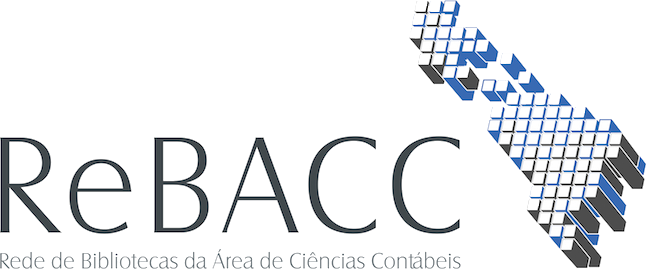Use este identificador para citar ou linkar para este item:
http://rebacc.crcrj.org.br/handle/123456789/5880Registro completo de metadados
| Campo DC | Valor | Idioma |
|---|---|---|
| dc.creator | Matos, Thiago Macedo Pereira de | - |
| dc.creator | Santos, Odilanei Morais dos | - |
| dc.creator | Rodrigues, Adriano | - |
| dc.creator | Leite, Rodrigo de Oliveira | - |
| dc.date | 2018-05-01 | - |
| dc.date.accessioned | 2020-08-13T16:02:06Z | - |
| dc.date.available | 2020-08-13T16:02:06Z | - |
| dc.identifier | https://www.revistas.usp.br/rcf/article/view/145503 | - |
| dc.identifier | 10.1590/1808-057x201804330 | - |
| dc.identifier.uri | http://rebacc.crcrj.org.br/handle/123456789/5880 | - |
| dc.description | The main goal of the paper is to analyze whether the positions of auditors and regulators, and their respective coalitions, regarding the proposals of the International Auditing and Assurance Standards Board (IAASB) in the last phase of the public consultation “Improving the Auditor’s Report” are significantly different, as well as the effectiveness of a lobbying strategy using comment letters. The relevance of this research lies in providing evidence on whether or not the IAASB is influenced by the lobbying strategies of different interest groups carried out via comment letters, especially auditors and regulators (both individually and in coalitions). The results show that both auditors and regulators attempeted to influence the IAASB’s decision-making process, with their coalitions taking a different position on some questions. However, none of these interest groups predominated in terms of the effectiveness of the lobbying carried out, hence the results are consistent with institutional theory, in that the IAASB seeks legitimacy in its actions and tries to accommodate several different interests, but does not let itself be captured by any specific group. We analyzed and classified the comments (from a total of 86 letters) to nine questions proposed by the IAASB into a five-point Likert scale. This classification was independently cross-validated by a second researcher. We applied ANOVA tests to analyze the position of the interest groups, and chi- squared tests for the position of their coalitions. This paper addresses lobbying within the process of auditing standards settings, thus expanding the current literature on lobbying in accounting, which is mainly restricted to accounting regulations. It also contributes methodologically by using a new five-point scale for the dependent variable instead of the usual binary approach. | - |
| dc.description | O objetivo deste trabalho é avaliar se os posicionamentos de auditores e reguladores e suas respectivas coalizões quanto às propostas do International Auditing and Assurance Standards Board (IAASB) na última fase de consulta pública do projeto Improving the Auditor’s Report são significativamente diferentes, bem como se a estratégia de lobbying por meio do envio de cartas-comentário é efetiva. A relevância do tema reside no fato de evidenciar se o IAASB, órgão regulador das atividades de auditoria no âmbito internacional, é influenciado ou não pelo lobbying dos diferentes grupos de interesse, realizado por meio de cartas-comentário, em especial os auditores e reguladores, sejam individualmente ou quando se unem em coalizões. Os resultados mostram a tentativa de lobby por parte dos auditores e reguladores, sendo que suas coalizões posicionaram-se diferentemente em algumas questões. Porém, não houve predominância de nenhum desses grupos de interesse quanto à efetividade na realização de lobbying, estando os resultados aderentes à teoria institucional, a qual suporta a busca por legitimidade das ações do IAASB, acomodando os interesses diversos, mas sem se deixar ser capturado por um grupo específico. Analisaram-se e classificaram-se os comentários (total de 86 cartas-comentário) a nove questões propostas pelo IAASB, de acordo com a gradação de cinco pontos (escala Likert). A classificação realizada foi validada por um segundo pesquisador de modo independente. Aplicaram-se, ainda, os testes ANOVA para análise do posicionamento dos grupos de interesse e o de qui-quadrado para o posicionamento de suas coalizões. O artigo aborda o lobbying no processo de regulação das normas de auditoria, expandindo a literatura atual quanto aos estudos sobre lobbying na área contábil, os quais são restritos ao processo de regulação das normas contábeis. Adicionalmente, contribui-se metodologicamente por utilizar uma classificação inovadora em cinco níveis para a variável dependente, ao invés da classificação binária comumente utilizada. | - |
| dc.format | application/pdf | - |
| dc.format | application/pdf | - |
| dc.format | application/xml | - |
| dc.language | eng | - |
| dc.language | por | - |
| dc.publisher | Universidade de São Paulo. Faculdade de Economia, Administração e Contabilidade | - |
| dc.relation | https://www.revistas.usp.br/rcf/article/view/145503/139490 | - |
| dc.relation | https://www.revistas.usp.br/rcf/article/view/145503/139491 | - |
| dc.relation | https://www.revistas.usp.br/rcf/article/view/145503/148424 | - |
| dc.rights | Copyright (c) 2018 Revista Contabilidade & Finanças | - |
| dc.rights | http://creativecommons.org/licenses/by/4.0 | - |
| dc.source | Revista Contabilidade & Finanças; v. 29 n. 77 (2018); 246-265 | - |
| dc.source | Revista Contabilidade & Finanças; Vol 29 No 77 (2018); 246-265 | - |
| dc.source | Revista Contabilidade & Finanças; Vol. 29 Núm. 77 (2018); 246-265 | - |
| dc.source | 1808-057X | - |
| dc.source | 1519-7077 | - |
| dc.subject | lobby; regulation; audit; auditor’s report; IAASB | - |
| dc.subject | lobby; regulação; auditoria; relatório dos auditores; IAASB | - |
| dc.title | Lobbying on audit regulation at IAASB | - |
| dc.title | Lobbying na regulação de auditoria no âmbito do IAASB | - |
| dc.type | info:eu-repo/semantics/article | - |
| dc.type | info:eu-repo/semantics/publishedVersion | - |
| Aparece nas coleções: | Revista Contabilidade & Finanças - USP | |
Arquivos associados a este item:
Não existem arquivos associados a este item.
Os itens no repositório estão protegidos por copyright, com todos os direitos reservados, salvo quando é indicado o contrário.

